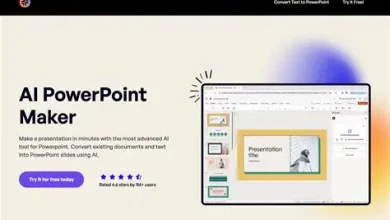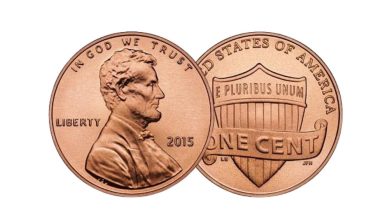
Introduction
Today, because of all the digital infrastructure, information can be accessed without limits by students, professors, as well as researchers. Accessibility aids learning and writing though it poses a serious challenge with ensuring work stays original and academic integrity remains. Copying or paraphrasing without acknowledgment of any kind or even accidental plagiarism may diminish the value of academic work. It is truly important for each and every learner to have a comprehension of academic integrity and of just exactly why it matters. Each learner finds plagiarism checkers helpful tools for upholding academic integrity.
This article explores just exactly what academic integrity truly means, also why it matters so very much in education and then in research, also just exactly how tools such as Quetext Plagiarism Checker can fully support all individuals as they faithfully uphold honesty, responsibility, likewise fairness as they continue on to practice writing.
What Is Academic Integrity?
Let us begin with establishing some points. Academic integrity is in need of a definition. Academic integrity essentially means doing scholarly work such as academic research contributions in an ethical and moral way honestly, fairly, and respectfully. It guarantees that researchers as well as students show their ideas through it. It also makes sure they properly acknowledge other people’s work and uphold trust inside schools.
What does academic integrity mean essentially? It means that people commit to principles that do include honesty and accountability as well as respect and fairness as they share or create knowledge. In the event that one writes the essay, as well as completes the assignment, or further conducts the research, academic integrity ensures that all of the work produced is original and is credible.
Why Is Academic Integrity Important?
Academic integrity is about not just avoiding plagiarism. It establishes academia. It is its base. Academic integrity makes for credible student and researcher work. Preserving it upholds trustworthiness and promotes credibility. It lacks value throughout the entire educational and research process. Since learners do avoid shortcuts, they are encouraged to build up analytical skills and also develop their ideas to improve creativity.
Academic integrity promotes fairness for it ensures a level playing field. Everyone is judged in accordance with merit when there is an absence of dishonesty. Professional ethics are built by academics who are both honest and responsible in their practice of ethics in professional life. The importance of academic integrity stems fundamentally from the protection of educational values, promotion of true learning, and the readying of people for a future that is responsible.
Common Challenges to Academic Integrity
Academic integrity maintenance can be challenging especially since digital resources access is enormous in the environment.
- Plagiarism: Not giving credit upon copying ideas or someone else’s words.
- Improper Citation: Sources are used, but someone is failing in order to cite them in a correct way.
- Teamwork Problems: Teaming with others breaks school policies.
- Pressure to Perform: Due to the competition or to deadlines, students can resort to unethical practices.
- Unintentional Mistakes: Plagiarism can occur accidentally when citation standards are not known to students.
Plagiarism checkers are valuable allies during this process, offering guidance to students and researchers. These tools do not replace learning, but they refine work and ensure originality.
How to Maintain Academic Integrity
Many students often ask: How to maintain academic integrity? The answer lies in combining awareness, effort, and the right resources. Below are strategies to uphold honesty and authenticity in academic writing:
- Understand the Rules Clearly
Different institutions define academic integrity in slightly different ways. Familiarize yourself with your school or university’s guidelines to avoid mistakes.
- Develop Strong Research Skills
Instead of relying on copy-paste methods, focus on gathering, analyzing, and paraphrasing information in your own words.
- Learn Proper Citation Practices
Understanding citation styles (APA, MLA, Chicago, etc.) is crucial. Knowing what MLA citation or other formats are ensures that you give credit where it’s due.
- Avoid Over-Reliance on Online Sources
Use a balance of textbooks, peer-reviewed journals, and credible digital sources.
- Use Plagiarism Checkers Responsibly
Tools like Quetext can help identify unintentional similarities and highlight areas that need proper citation.
By practicing these habits, students can confidently submit work that reflects honesty and originality.
Role of Quetext Plagiarism Checker in Academic Integrity
Now, let’s focus on how a plagiarism checker supports academic integrity. Tools like Quetext are not designed to “catch” students but rather to help them identify weak areas and correct mistakes before submission. Here’s how:
- Detects Unintentional Plagiarism: Similarities can originate even during paraphrasing. You may amend suitably utilizing these excerpts from Quetext.
- Promotes Correct Attribution: It urges authors toward proper citation because it elucidates citations overlooked.
- Learning Promotion: Instead of being penal, such implements aid pupils to discern the contrast between paraphrasing. Scholars are able to learn quoting as well as summarizing.
- Saves Time for Educators: Teachers and professors can quickly identify whether work follows academic integrity standards, ensuring fairness in grading.
Ultimately, plagiarism checkers act as a support system for both students and educators in preserving the values of education.
The Relationship Between Academic Integrity and Technology
Some argue that technology has increased plagiarism by making it easier to copy and paste information. While this may be true, technology also provides solutions. By using advanced AI-driven tools, students can now self-check their work before submission, ensuring they meet academic standards.
Rather than viewing plagiarism checkers as barriers, students should consider them as tools for growth. They promote accountability and help students understand that academic integrity is not about punishment but about personal development.
Academic Integrity in the Age of AI
With AI writing tools like chatbots, paraphrasing tools, and writing assistants becoming more popular, questions about academic integrity have resurfaced. Does using AI mean violating integrity? Not necessarily.
The key lies in how these tools are used. If a student uses AI to brainstorm ideas, improve grammar, or refine structure while still producing original thought, academic integrity remains intact. However, copying entire AI-generated essays and submitting them as one’s own crosses ethical lines.
Plagiarism checkers play a crucial role here by identifying AI-assisted or duplicated text, ensuring that originality remains at the forefront.
Building a Culture of Academic Integrity
Academic integrity goes beyond individual actions. It requires collective responsibility among students, educators, and institutions. Some steps toward building a culture of honesty include:
- Workshops and Training: Schools and universities should educate students on what academic integrity is and how to practice it.
- Clear Policies: Institutions must provide transparent guidelines with real examples of misconduct and acceptable practices.
- Support Systems: Offering tools like plagiarism checkers and writing centers helps students succeed without resorting to dishonesty.
- Encouraging Curiosity: When learning is driven by curiosity instead of grades, students are more likely to value originality.
By fostering an environment that celebrates honesty, institutions can ensure that integrity remains a guiding principle.
Academic Integrity Beyond the Classroom
Academic integrity is not only about school assignments or research papers. Professional life gets extended as well into that. Professionals in medicine, law, engineering, or journalism have an expectation to uphold honesty along with credibility. Work plagiarized from these fields could have severe ethical or legal consequences. Life-threatening consequences could occur also as a result of plagiarizing any work.
So students with value for academic integrity from early on are in this way better prepared for upholding ethics throughout their careers. It is a lifelong principle more than just being an academic requirement.
Conclusion
Academic integrity is not maintained by avoiding punishment; it is cultivated when people act honestly, responsibly, likewise respectfully toward knowledge. For both students and also for educators, it is necessary that they have a comprehension of the meaning of academic integrity, that they know just why academic integrity matters, and that they then maintain academic integrity to build for themselves a credible academic and professional future.
Tools such as Quetext Plagiarism Checker are companions in this adventure. In writing, they provide needed guidance to ensure originality. Proper citation and ethical practices are also ensured by them now. However, individuals ultimately are responsible for valuing learning and respecting intellectual property. People should promise to act honestly always too.
Academic integrity can be upheld at every sphere in life through combining of awareness and ethical practices with all the right resources.





